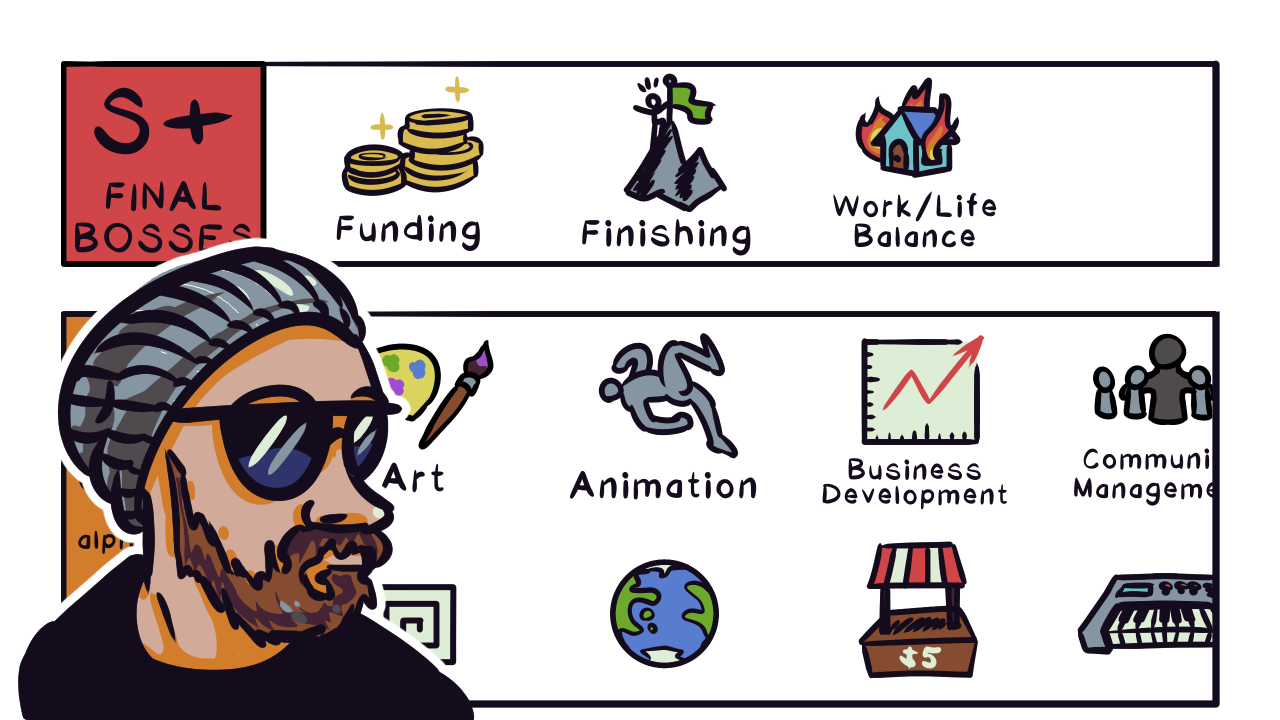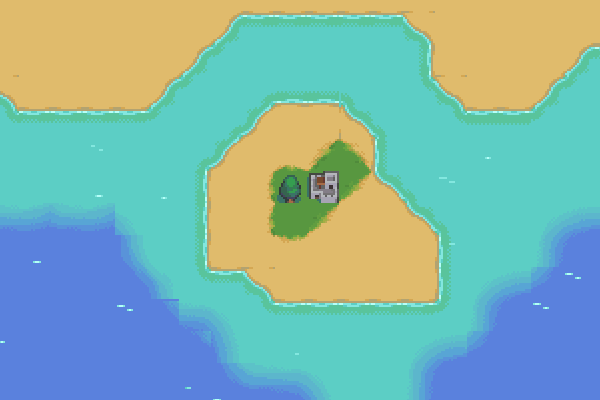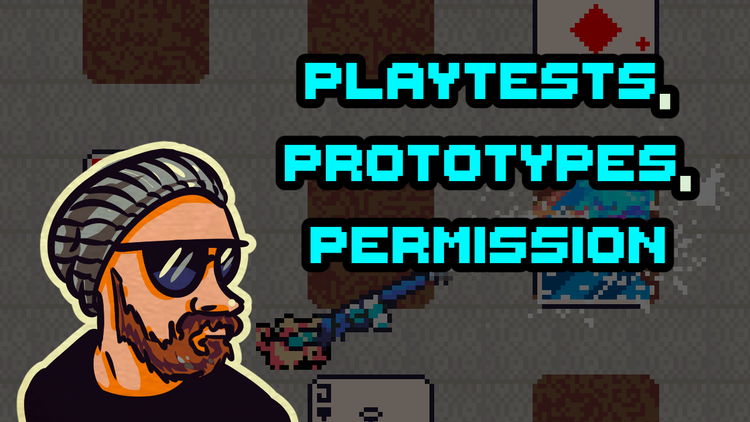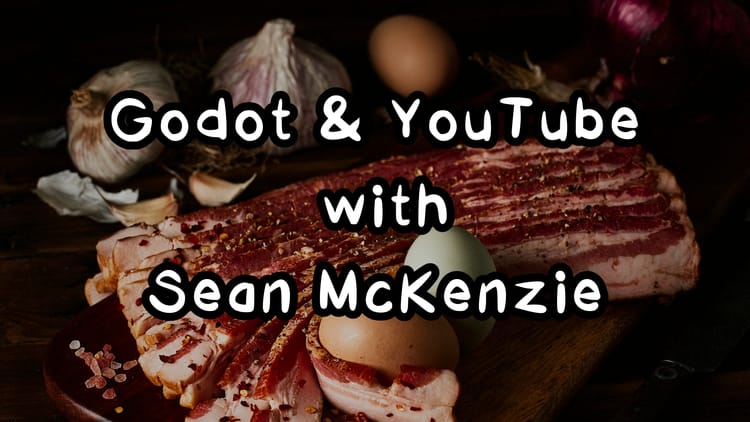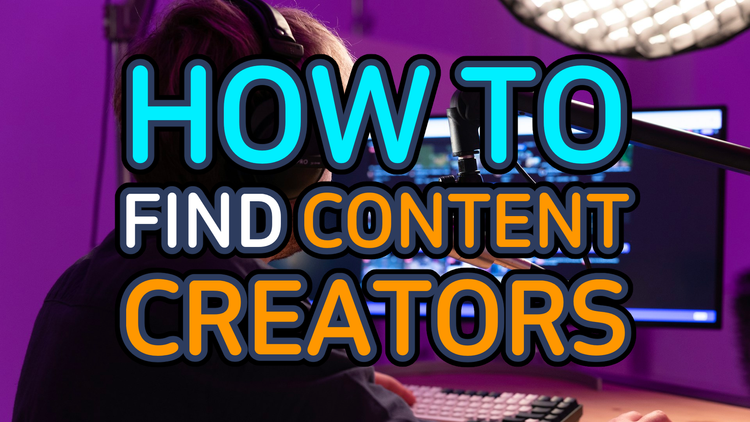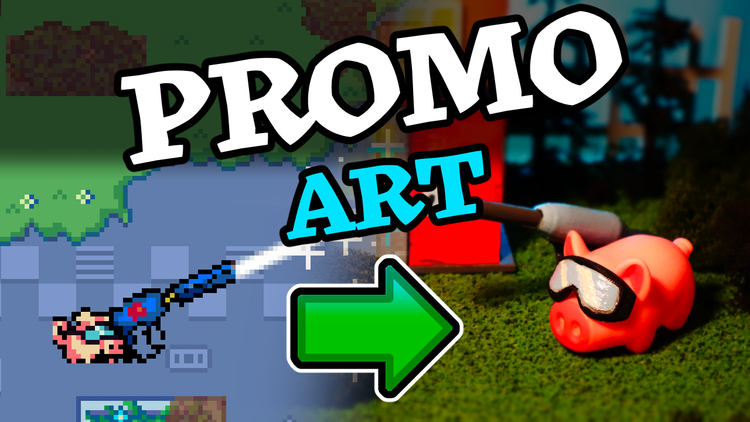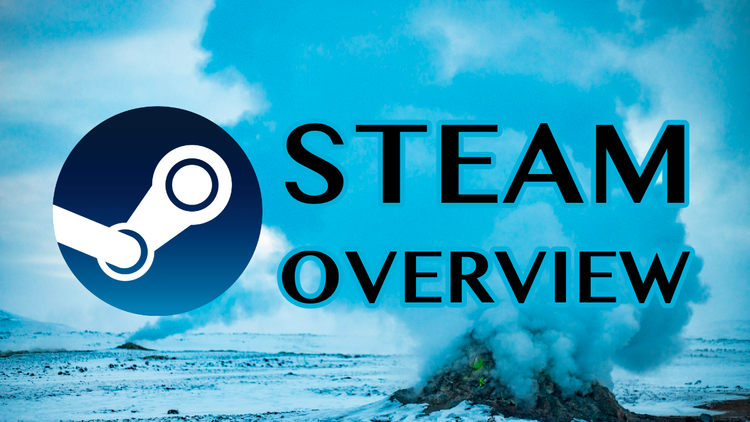📊 My 2-year indie postmortem
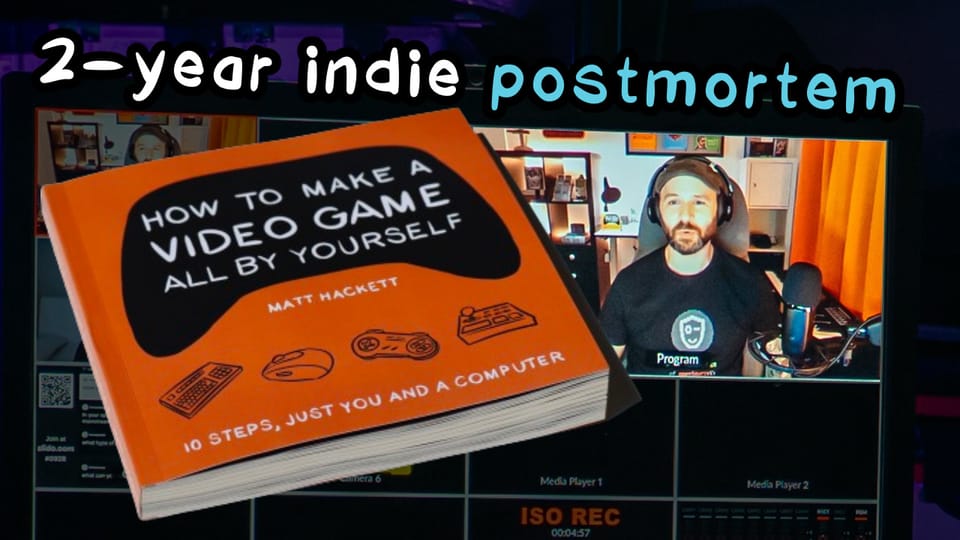
I quit my job in October of 2021. Oh, heard this story before?
Yeah, well, here's mine. I had a 2 year runway to dedicate to my indie projects including a book, podcasts, a tutorial package, content marketing, & two games. Let's cover:
- The Timeline
- What Went Right
- What Went Wrong
- Community Q&A
🎙 Listen to the podcast
It's right here (ya know, for your ears instead of your eyes).
🗓️ The Timeline
The first half of 2022 was fairly productive. The rest ... not so much.
2022
- Feb 15, 2022: Announce How to Make a Video Game All By Yourself
- Mar 5, 2022: 7-Day Roguelike Game Jam (result: Witchy)
- 📙 Mar 15, 2022: Release How to Make a Video Game All By Yourself
- Mar 17, 2022: First Witchmore commit (started work in earnest)
- May 10, 2022: Release Make the Game with Matt Hackett (my podcast)
- 💰 Aug 2, 2022: Release Making Big Indie Games (my tutorial package)
- Sep 6, 2022: Witchmore announcement
- 🏥 Sep 28, 2022: Severe health issues (below is me at the ER)
Sadly, that was about it for my year. I posted some, kept podcasting a bit, but otherwise had no major releases, no major developments. Pain & discomfort kept me from moving too hard or too fast. (Take care of yourself, friend.)
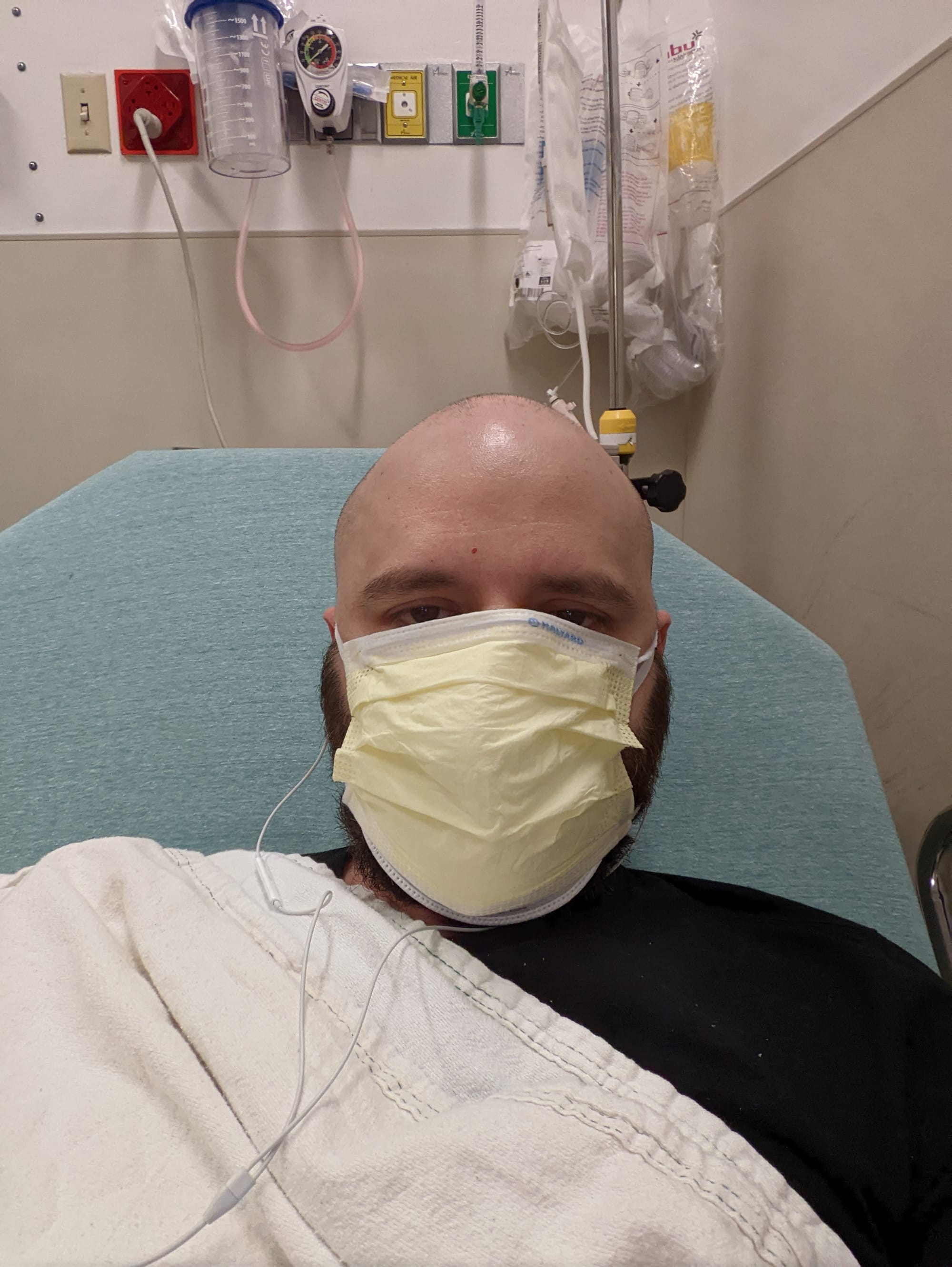
2023
In 2023, I tried to move past my health issues & focus on being productive. This is the year when my "content marketing" efforts kicked into full gear, starting with my first viral tweet, the Game Dev Difficulty Tiers.
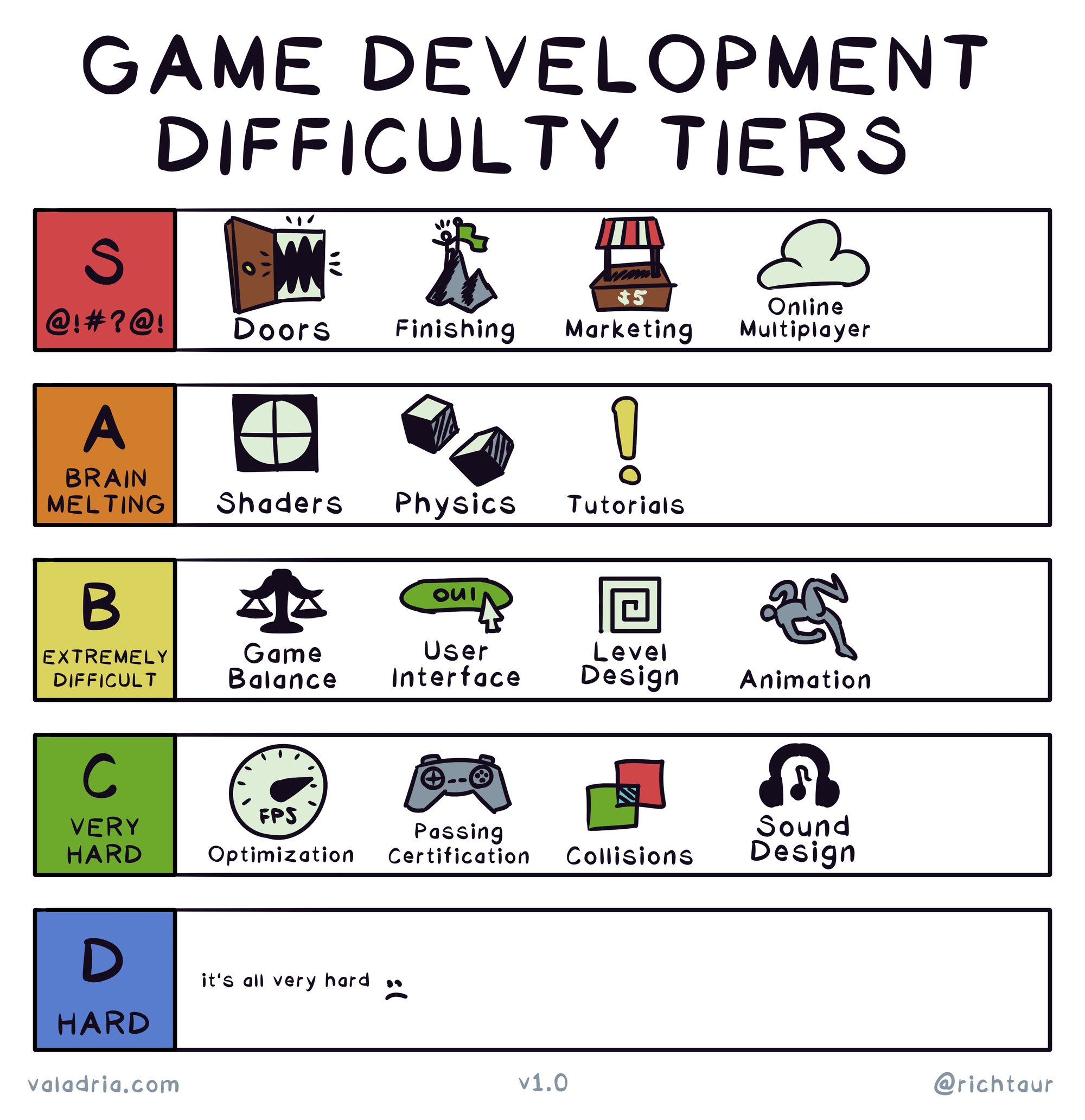
The first half of 2023 is when I found my stride as an indie book marketer (and game dev comic artist). I also collaborated with some fellow developers & creators in a bid to increase my podcast & YouTube subscribers.
- 🔥 Feb 8, 2023: Game Dev Difficulty Tiers
- Apr 24, 2023: Steam Dev Cheat Sheet (another viral post)
- Apr 25, 2023: Fruit Ninja designer Luke Muscat talks going solo dev
- May 16, 2023: 2.5 million views for 10 game dev comics
- 🏆 May 23, 2023: Steam Game Marketing GOLD with Chris Zukowski
Talking to Luke and Chris was especially influential to me. Their advice made me ravenous to start on a new project, and so I did, with Pixel Washer. The rest of the year would go into this new game, content marketing, & other promotional efforts:
- Jun 20, 2023: Weekend game jam: Pixel Washer
- Aug 1, 2023: Making great game trailers with Derek Lieu
- Sep 26, 2023: Main Project Syndrome with Ben Anderson (HeartBeast)
- ⬇️ Sep 28, 2023: JS GameDev Summit co-host
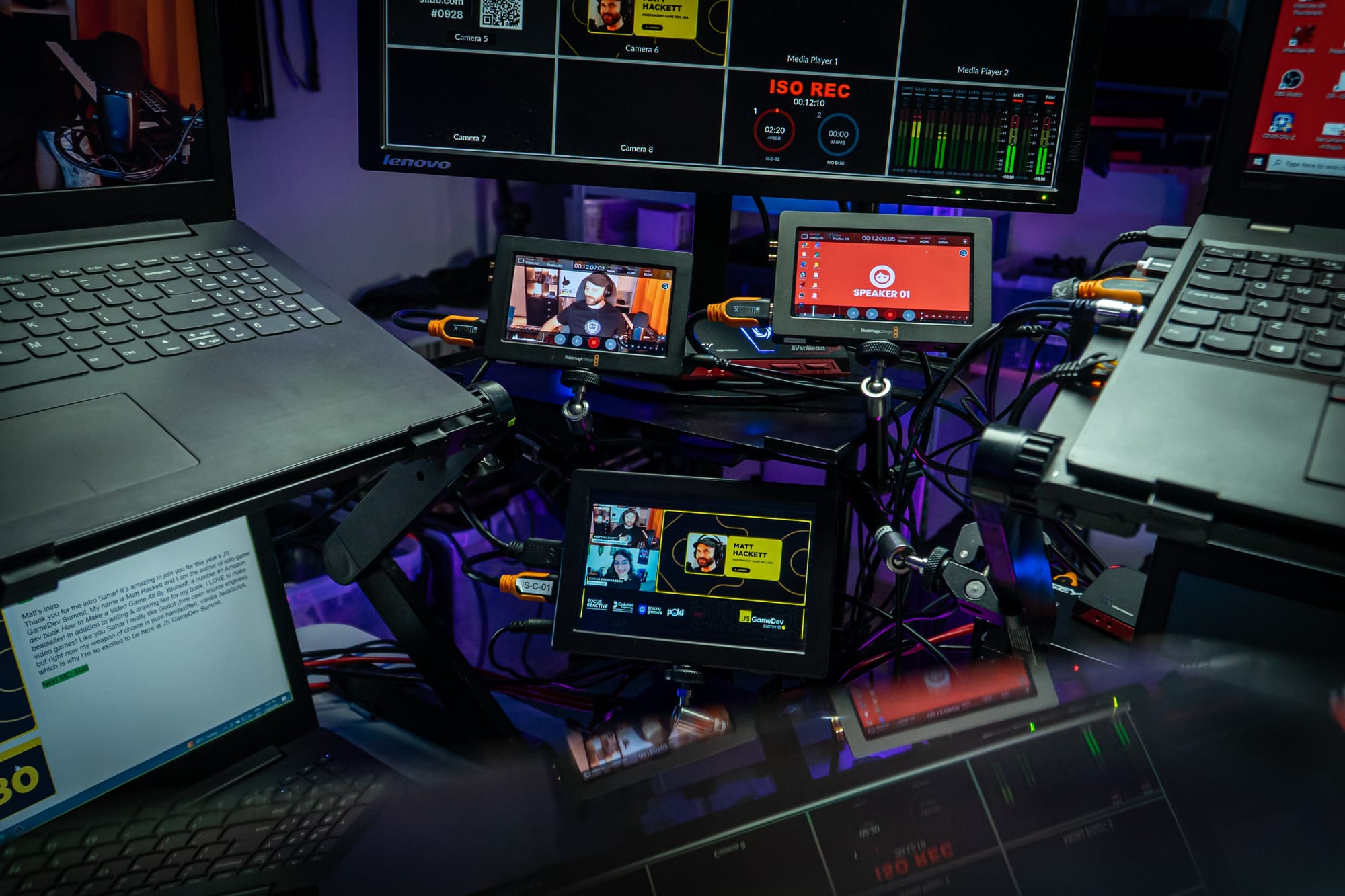
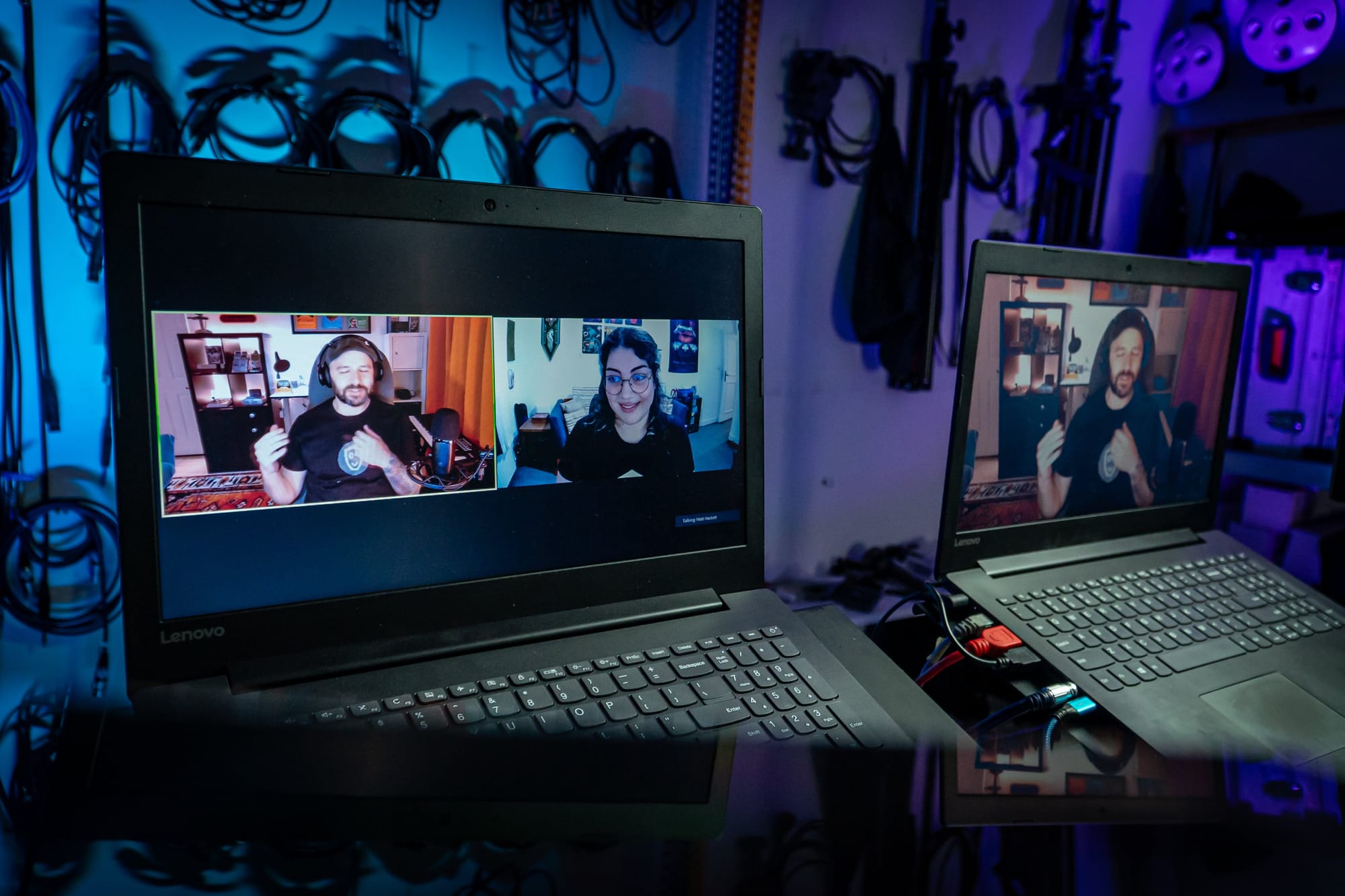
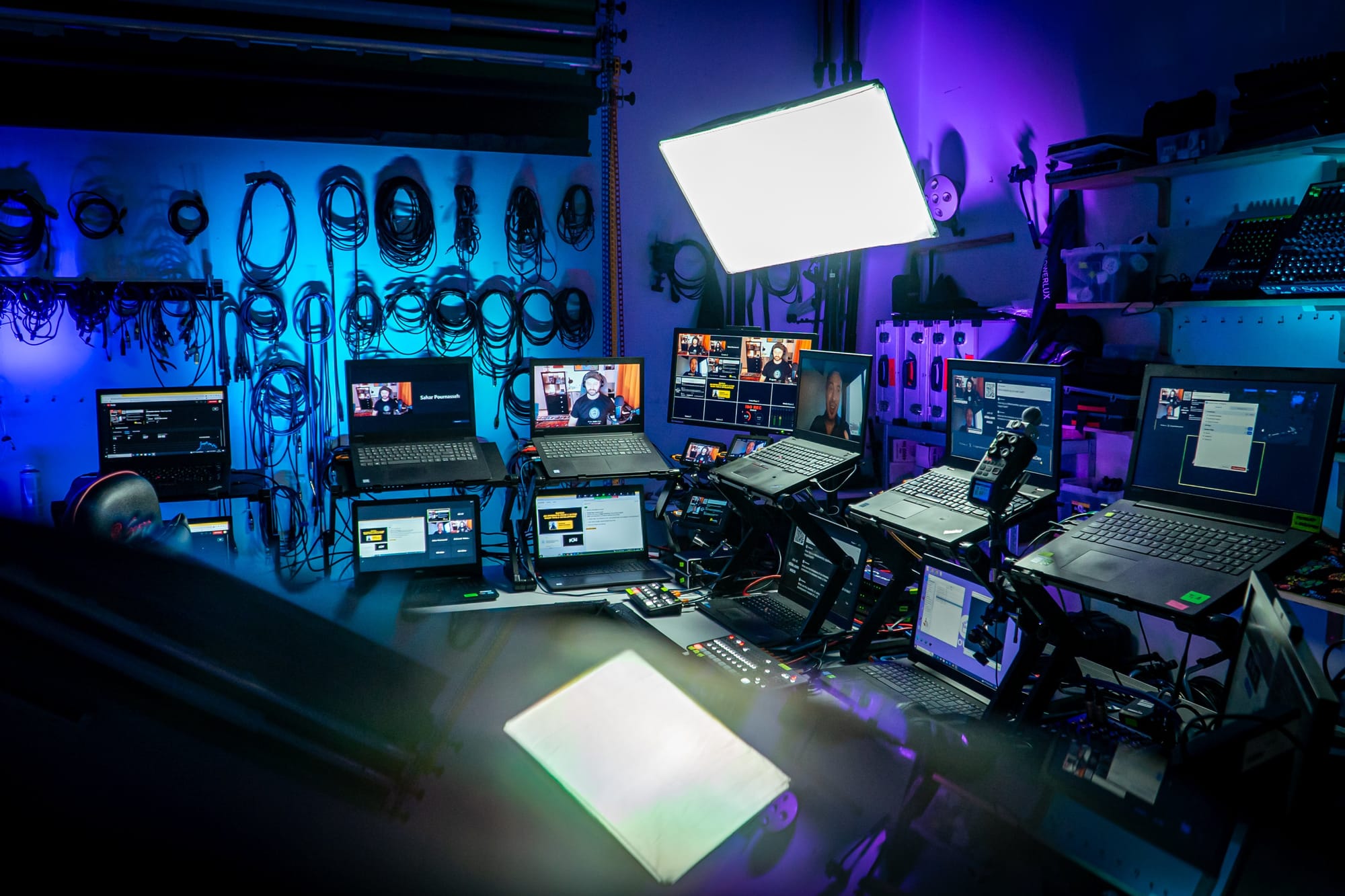
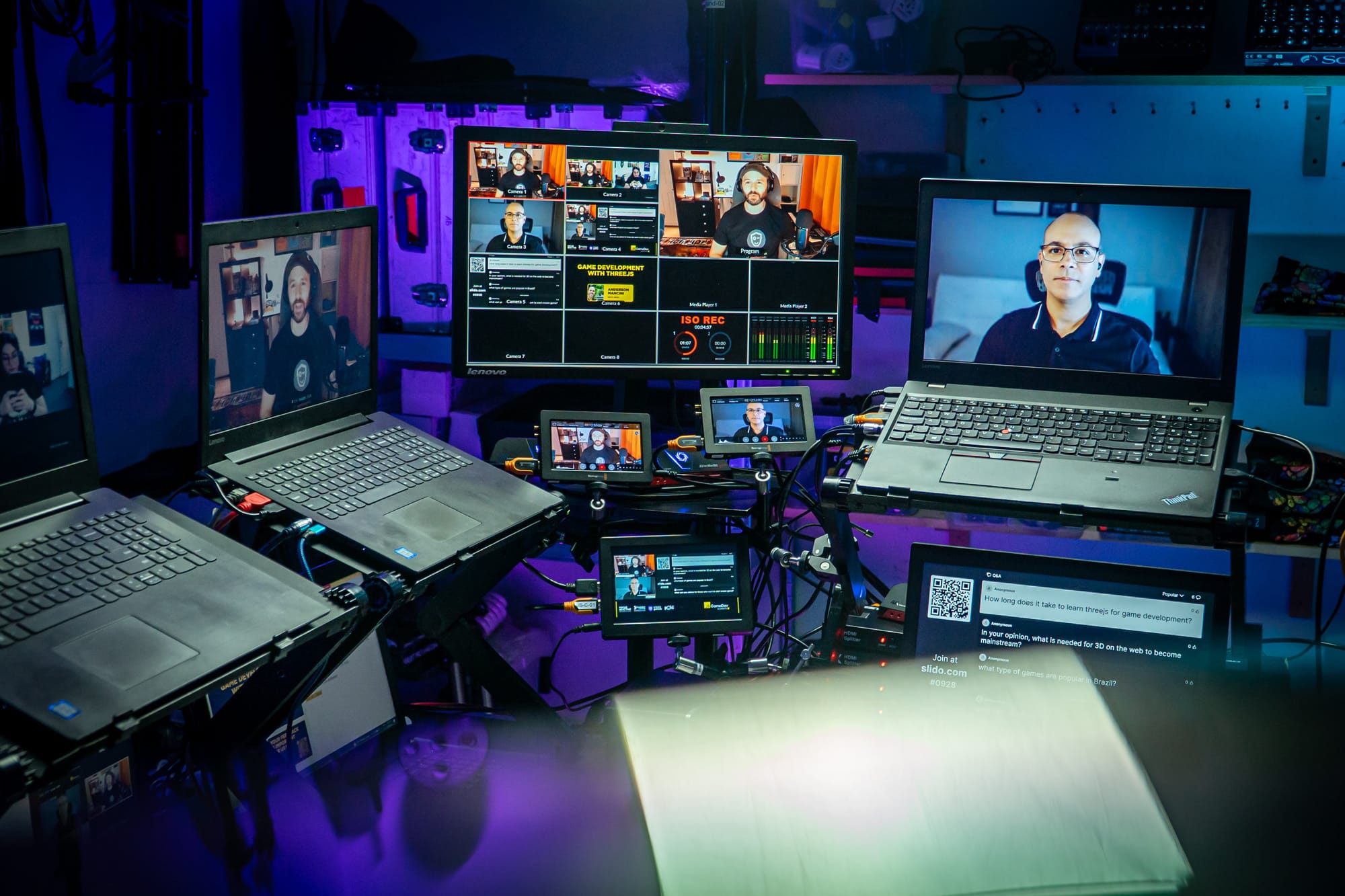
Co-hosting JS GameDev Summit 2023 was a lotta fun!
The remainder of 2023 was largely a wash. Health issues, holidays, distractions, and my own poor planning all conspired to keep major projects from moving forward. I wanted to ship more products in that time, but the only "worthy" project to come out of this period is Pixel Washer.
Be a pal & washlist Pixel Washer on Steam.
It's shocking how fast 2 years can go by. At the beginning it felt like I had time for anything. A book, a tutorial package, a game, a summit? No problem! Throw them all in the pile, I'm sure I'll get them all done. After all, I am a titan (as are you)!
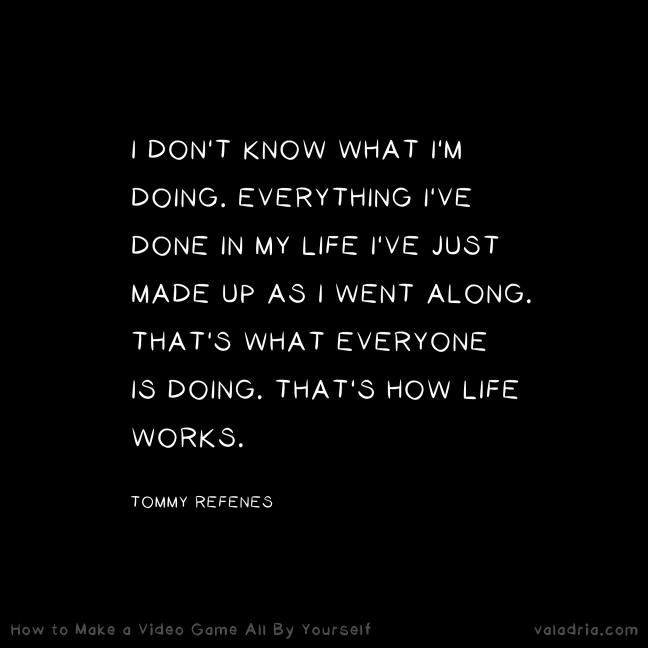
✅ What Went Right
These last 2 years have been great, and a lot of things went well. If I had to pick the 5 things that went best, in order, they'd be:
1) How to Make a Video Game All By Yourself
Even if I did nothing else right, at least I have my book.
It's been received better than I had ever hoped. It's been rated higher than I thought it would, it's sold better than I expected, and continues to sell more & more over time. I'm pleasantly surprised & very grateful.
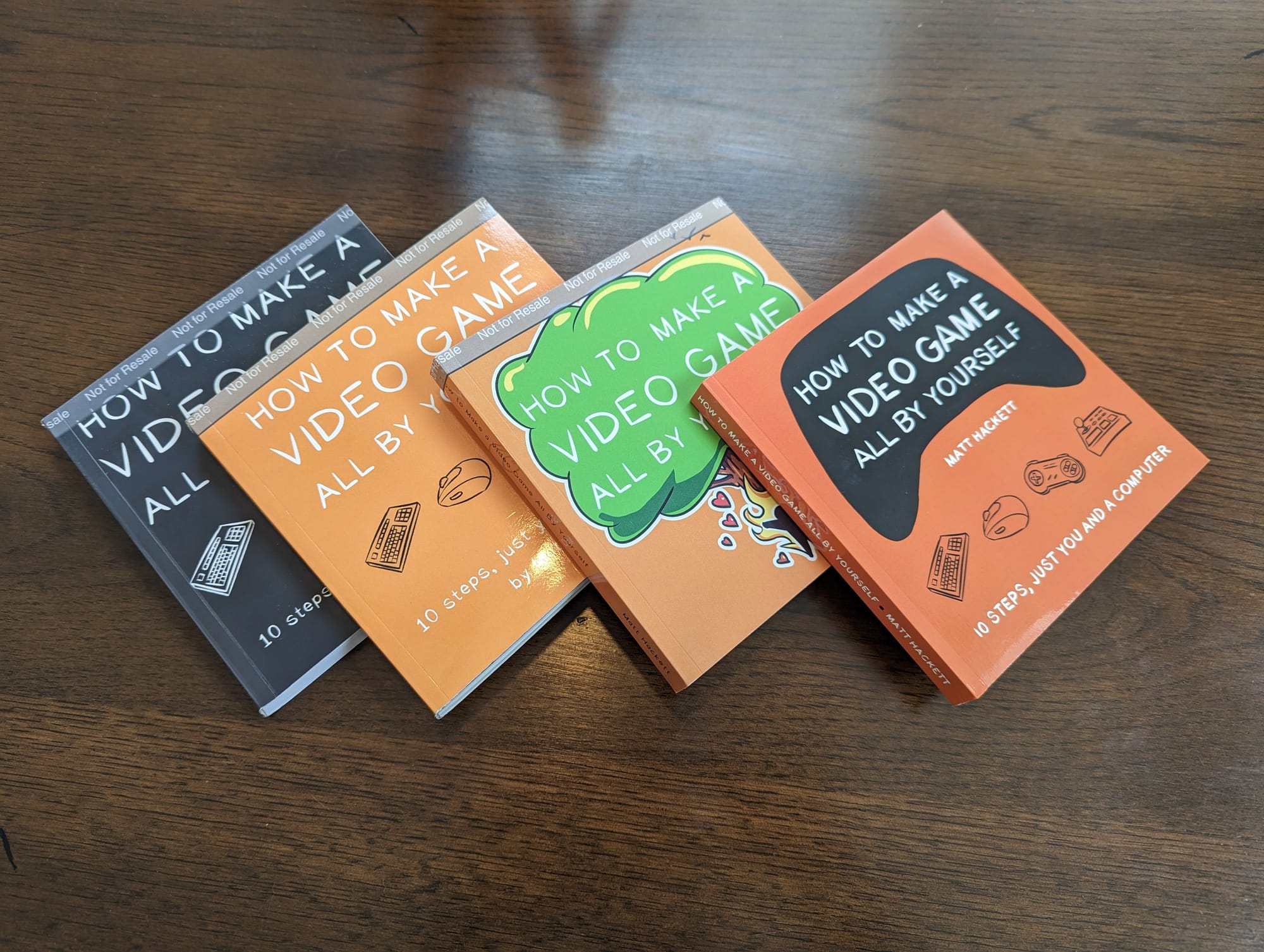
I didn't know what kind of impact How to Make a Video Game All By Yourself would have on my life. How could I? I'd never written a book before. Now that I have, I've become an advocate for self-publishing your own book. Here's why:
- Small scope: Compared to a whole-ass video game, a book is "easy".
- Justifies dev outreach: My content attract devs, who buy my book. Cool!
- Legitimacy: Folks take you more seriously when they see you're a PuBlIsHeD aUtHoR! Look me up, suckers!
- Physicality: Indie games are primarily digital. In this space, something tangible such as my paperback book feels like a healing salve in your hands.
2) Content marketing
It's hard to argue with the book sales. It's sold over 6,000 copies now and it surely wouldn't have without my content marketing efforts.

The Game Dev Difficulty Tiers, Steam Dev Cheat Sheets, comics, and more have all gained millions of views ... on Twitter. Granted, I haven't really solved the puzzle on any other platform (like YouTube or TikTok), but to me it's pretty clear that Twitter likes my game dev comics and shit posts.
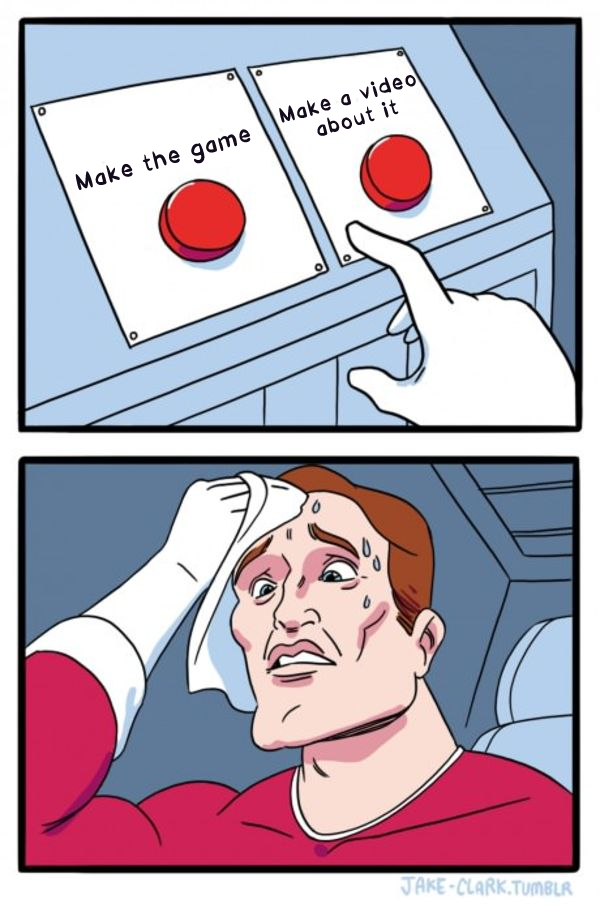
And all those comics link back to my stuff! They help sell books, it's great.
Not sure how it makes me feel that my comics are more popular than my games.
3) Friends & collaborations
What is a game dev journey if not the friends we make along the way? Honestly, if I've done nothing else with these 2 years, at least I've made some new friends, became closer with fellow like-minded devs, and overall had a good time.
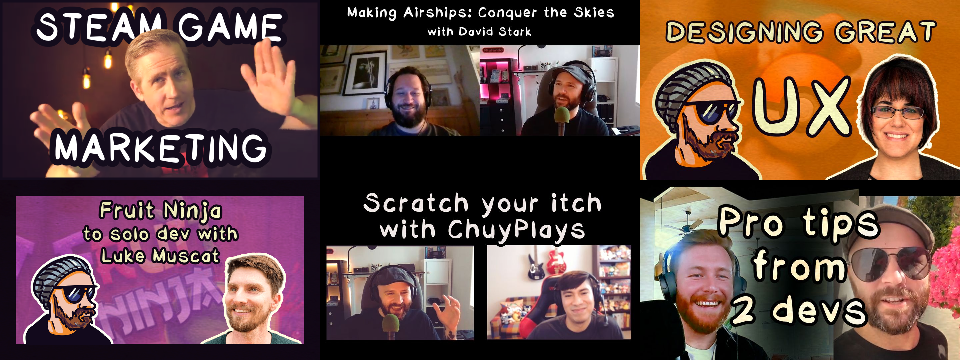
These collaborations are one of the few things that really moved the needle for me & my little company. For example, it's no coincidence that my podcast with Chris Zukowski has twice as many plays as the average episode.
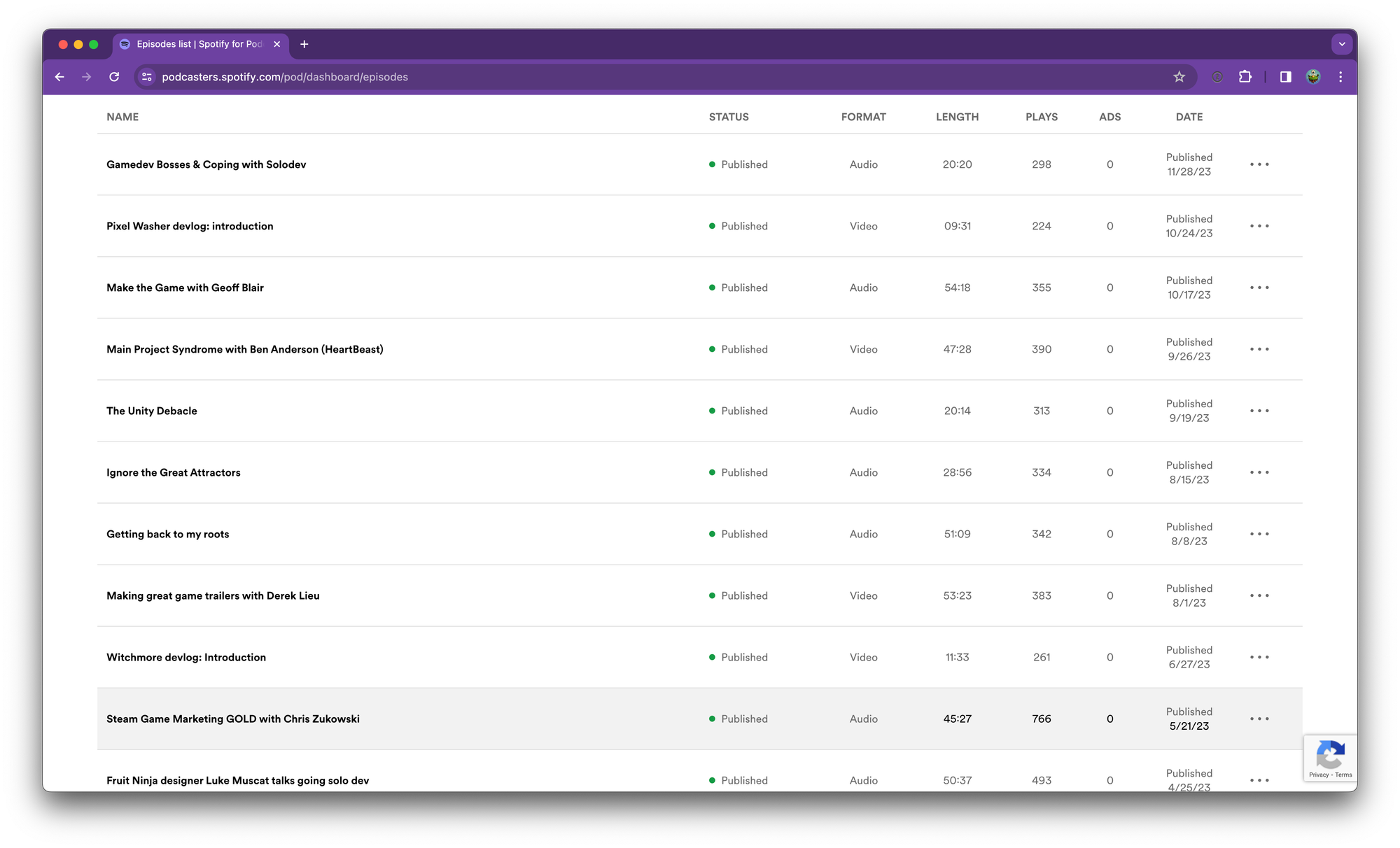
I believe that collaborations are a major component of growing your audience. Just be careful & try to communicate thoroughly; I've had multiple collaborations fall through even after I'd spent days working on the projects.
4) Creative fulfillment
I don't know exactly how to describe this, but I needed to work on my new company Valadria for a couple years. I'd been low-key depressed for ages, since my indie company Lost Decade Games shut down around 2016.
I'm the sort of person who needs a creative outlet, but also some control over my destiny. Since LDG was no longer there to house my output, I had to replace that with something, and that something was Valadria.
Through Valadria I got to work on Witchmore, I got to indulge myself with devlogs & game dev comics & really whatever I wanted to work on.
I went a little too far with this, as I'll talk about in the upcoming What Went Wrong section, but if nothing else I'm coming out of this 2-year period refreshed & creatively fulfilled for the first time in years. Years!
Probably my most creatively fulfilling video so far. I could make these all day.
5) The castle is built
Not only am I currently creatively fulfilled, but I've built the infrastructure to ensure that I'll continue to be creatively fulfilled.
When the creative juices flow, I've got multiple avenues to direct them, with a built-in process & audience:
- If I want to podcast, I've got almost 300 subscribers on Spotify
- If I want to blog, I've got about 800 newsletter subscribers ready to read
- If I want to devlog, I've got more than 1,400 subscribers ready to watch
- If I wanna make a comic, I've got templates & almost 8,000 Twitter followers
- If I want to make a game, I've got robust game engines in the form of Witchmore & Pixel Washer (and, uh, 1 Steam follower lol)
Basically what's gone right is there's a clear pipeline for making stuff. For anything I want to do, there's a process for doing it, and for anyone who wants to follow along, there are multiple avenues to do so.
One of my favorites from Chris Z.
The castle is built, right in my own backyard, and it's ready for more. I am too.

⛔️ What Went Wrong
Naturally, I knew things would go wrong. How could they not?
What's surprising to me is that I only expected the LAST item in this list! Everything else caught me completely off guard.
1) Health (Planning)
There's this tiny little word in my book that's easy to miss – unknowns.
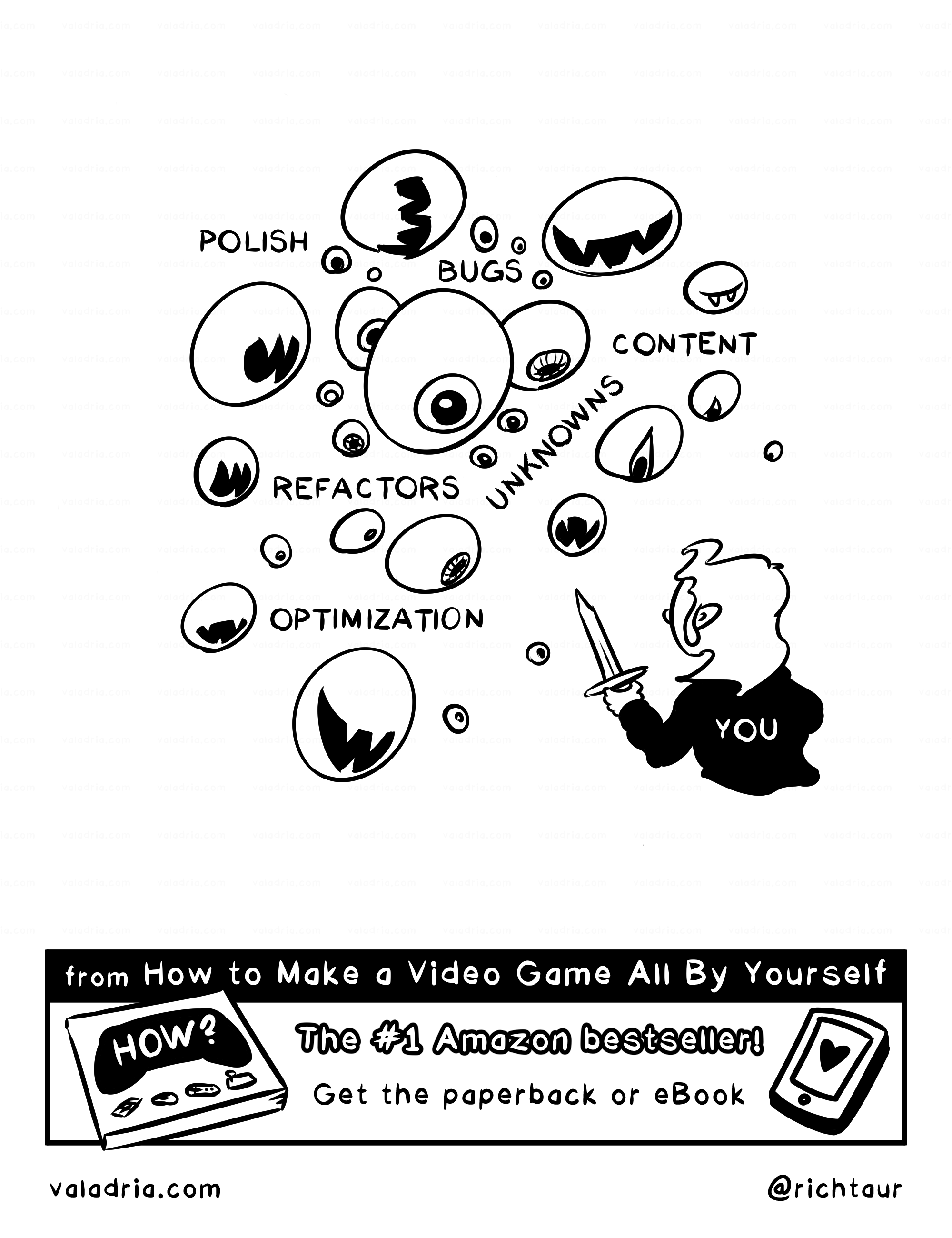
I didn't expect to have health issues, but worse than that, I didn't even consider it a possibility. It's hard to measure, but I would guess I lost 30-40% of my time due to health issues. Maybe I could have shipped a game in that time?
I mean, probably not, but we'll never know!
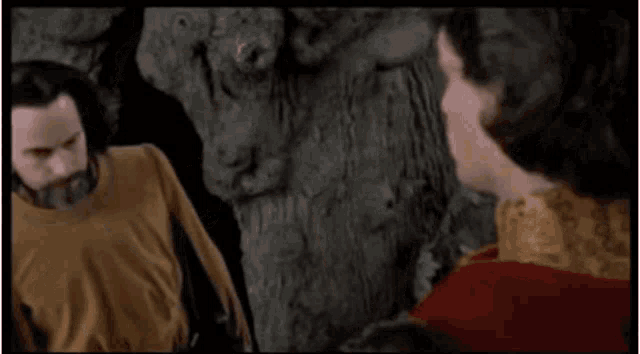
"If you haven't got your health, then you haven't got anything."
Take care of yourself, eat the right food, try to exercise, whatever, but none of us really knows what's gonna happen with our health. We hope for the best, and usually we're fine ... but not always.
To deal with this, in the future I'm going to add 20% to my estimates. When applying that to, say, the 5 days of our week, that's a whole day gone. 5 days turns into 4 days. 6 months is now less than 5. Essentially, we have less time & need to move faster.
Assuming there's less time is wise anyway, though, isn't it? We're all bad at estimating how long software takes, so let's just assume everything's gonna take longer than we think. It's true most of the time regardless, so we might as well integrate it into our process.
2) Failure to launch
My company Valadria started strong with a book release in March of 2022. A few months later I launched a tutorial package, and I intended to keep launching new products like that, but did I?
No, I didn't.
It was part of my overall business plan to launch a new paid product about every 3 months or so. Most of my ideas for these products were for tutorials, maybe short books, or asset packs or something. I think the reason I didn't keep up with this is because I wanted to focus on games, which take forever to make.
My friend Ben is smart about investing his time into courses & tutorials.
Also I was constantly distracted & derailed by the next two points: social media and publishers.
3) Social media derailing
If this section boiled down to just one mistake it would be:
Spending time on the wrong things.
I spent way too much time editing videos for YouTube that almost nobody watched. The ROI was just not there. I'd spend days, sometimes the entire week, on individual videos. It was so fun and creatively fulfilling, but I lack the domain knowledge & connections to excel on the platform.
Going further, I spent too much time on social media (especially on Twitter). Remember earlier under What Went Well when I said "Content marketing went well!"?
Well in retrospect I wasn't prepared for the mad dopamine rush you get when people actually give a shit about what you're working on! I obsessed over when to post, responding to as many folks as possible, and of course constantly creating shiny new comics for the bottomless gaping mouths of hungry indie devs starving for the next relief from the existential dread of pouring their hearts into games that yield disappointing returns.
Sometimes I'd spend hours basically doing PR & community management. This stuff is good & important for businesses of a certain size, but I wasn't there yet. Instead, I should have focused more on product & business development.
4) Publisher derailing
Several publishers have reached out about my two games, Witchmore, and Pixel Washer. Sometimes this outreach isn't interesting and I move on, and other times it's very interesting ... but highly distracting.
When you're in a position like I am, a year of funding is super tantalizing. It could mean the difference between focusing intensely on making your game, or being spread super thin like I have between game development, content marketing, coaching, contracts, and whatever else.
Publishers require lots of time & effort. They'll want a pitch deck, which takes a bunch of time to make. Simply researching publishers takes time, hours or days for sure. Here's a relevant question from the Valadria community on Discord:
How many games have you played for fun vs research over the last two years?
-Jeremy
When I'm dedicated to working on my games I'm usually not playing games much. I think my head just can't get in it. But recently for research, I bought and played a bunch of games published by one of the publishers I've been talking to.
They might want to know that you've done your research, and have at least a surface-level understanding of some of the bigger games in their portfolios. That alone took a day or two, and felt more like work than fun, ya know? This is another chunk of time I hadn't expected.
I don't want to think about how long I've spent (and likely wasted) dealing with publishers in the last 2 years. Between emails, meetings, pitch decks, and working on demos, it could be months. I have more experience now, but no contract (yet).
5) Lack of business focus
My focus was on doing what I wanted, being creative, and being happy.
While that's all good, and I'm very privileged to be able to have done that for a while, it does not make a business. Making money makes a business. Paying the bills makes a business. Since my priority was just, "Make Matt happy" that's what we got. A fairly happy Matt but no sustainable business (yet).
If I had focused on business more, I would have had a better business strategy, which would have made me less likely to get derailed by these outside forces.
The one time I thought about business in 2 years.
🔊 Community Q&A
Join the Discord to get your own questions up in here.
What would you do differently as 2-years-wiser Matt if you were to start now?
-Hamza
With another 2 year runway, I would focus on Pixel Washer, since 2 years should be plenty of time to make it an absolutely amazing game. In that time I'd also live stream the development, constantly create promotional videos for TikTok, and experiment with attracting YouTubers to the game. Basically now that I've got a playable game that I believe to be marketable, I'd double-down on it. Make it as good as I can & promote it as hard as I can.
Here would be my plan if starting from scratch:
- Release a new (paid) product every 3 months without fail.
- Commit to no new games; instead, create concepts & pitch them on social media, waiting until one takes off in a very obvious way.
- Focus on content marketing efforts that are collaborations with cool people who want to help each other (with larger audiences than mine).
- Do paid contracts occasionally to pay the bills (it's the indie way!).
- Plan for everything to take 20%+ longer than expected.
...
Either way I'd write another book.
Finished reading? Give a listen to the podcast version of this article. 🎙


